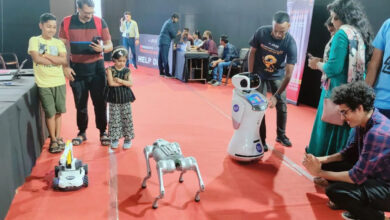Production Systems Automation at forefront of automation, robotics


Courtesy of Production Systems Automation
Production Systems Automation’s (PSA) location in Duryea sits on nearly 25 acres and spans three warehouse buildings totalling over 90,000 square feet, and if you stepped inside any one of them you’d find a number of innovative projects in the works.
“The work we do is not what anybody ever expects,” PSA CEO Michael McHale told the Times Leader during a tour of the facility.
From a technology driven ghost kitchen, drones and 3D printers, to an automated medical machine that implants tubing into the body, like heart or brain stints, PSA is at the forefront of driving automation and robotics work in the area.
Founded in 1985, PSA now has three locations through out Pennsylvania. The Duryea location was added in 2018 and now serves at the firm’s Community of Businesses Corporate HQ Campus that employs software engineers, computer scientists, electrical engineers and mechanical engineers and more.
“We design, build, fabricate, all of that,” McHale explained.
PSA offers custom built machinery to meet the needs of businesses looking to find automated solutions to streamline operations and ensure worker’s safety.
“They say, ‘Hey, we’ve got this problem, how can you fix it?” said McHale.
Because of this, there are ample opportunities for workers to be creative, to problem solve and to think outside of the box.
“Everything we do here is an experiment,” McHale said.
As with any new, emerging technology, there are questions about how it will effect the workforce and whether or not automated machinery will ultimately lead job losses.
However, McHale pushes back against this idea.
“I don’t think it actually takes any jobs away,” he said. “This is up-scaling. Most of the automation we do is for jobs no one wants to do.”
Automated machinery still needs to be designed, fabricated, and tested by human beings and because of that, McHale said it actually creates more job opportunities.
Helping to educate and foster the next generation of industrial technology workers is one of the reasons PSA is a sponsor of the Center for Technology Innovation (CIT) at Lackawanna College.
PSA also created a podcast in order to share the world of technological innovation with listeners to get them excited about it.
“It helps with networking and it shows that you’re cutting edge,” McHale explained. “Very little companies like ours do podcasts.”
Looking toward the future, McHale is hopeful that automated and robotics technology will flourish in NEPA as more businesses and community leaders step up to embrace it and fund it.
For PSA, McHale’s top priority is continued growth.
“I’m working with a bunch of game changers that will make the next ten years incredible.”



